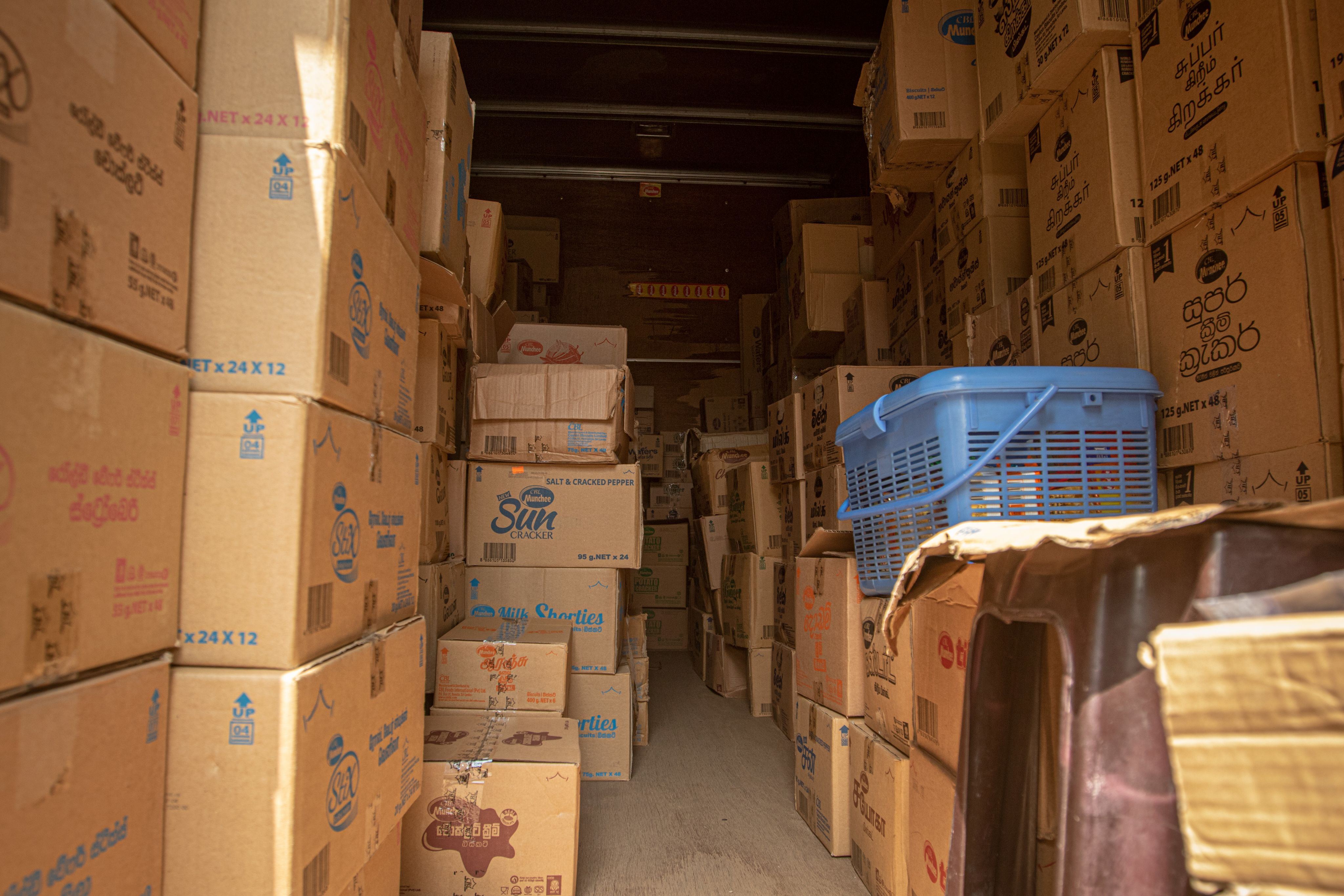Women Entrepreneurs' “Route to Success” in Sri Lanka
Training women strengthens supply chain, boosts distributors' growth

The COVID-19 pandemic upended life for Nirosha Silva in a way she never anticipated.
For years, Nirosha managed her household in Panadura, a coastal town located about 30 kilometers south of Colombo, Sri Lanka. Her husband, Anura Silva, owns and operates Y.A.S. Distributors, a company he built from the ground up. The business distributes biscuits and confectionery products for Ceylon Biscuits Limited (CBL), one of Sri Lanka’s largest fast-moving consumer goods conglomerates. With two decades of experience, Anura’s company is one of CBL’s leading distributing agents, and covers nearly 3,000 retailers in the area.
Despite Anura’s plans to expand the business, he had not considered including his wife—and she had never thought it of it, either. That changed in August 2021, when Anura participated in an IFC-led capacity building and training program conducted for over 320 distributors in CBL’s network across Sri Lanka.
The program, called “Senehasin Jayamagata” (“Route to Success”), encourages business owners to nominate female family members to participate. Anura chose his wife, Nirosha, and following the training, they planned for her to become more involved in the business.
But the timeline accelerated after the untimely death of a fellow distributor from COVID-19—an event that revealed to both Silvas the vulnerabilities of leaving a business without someone ready to take over. Anura realized how important it was to have a succession plan in place for his own company to guard against the risks of the future. “Route to Success” strategies helped Nirosha begin working with her husband, and she was soon managing over half the business. Now, she is a director of Y.A.S Distributors, actively involved in shaping the future of the business with her husband.
"One of the most rewarding aspects of 'Route to Success' has been the change in mindset."
Shea Wickramasingha
Group Managing Director, CBL Group

Nirosha is part of a small minority of businesswomen in Sri Lanka. Though in practice Sri Lankan women play significant roles in the country’s small-and medium-sized businesses (SMEs), most often their role is unpaid and informal. Out of the one million SMEs—which account for 80 percent of all businesses in Sri Lanka—only a quarter of them are officially owned by women.
“One of the most rewarding aspects of 'Route to Success' has been the change in mindset, in both male business owners and their female family members," says Shea Wickramasingha, Group Managing Director of CBL Group. "The training helped business owners identify and address key risks in their business and, despite some initial reluctance, every business owner who attended the program brought a female family member—spouse or daughter—with them the next day. We saw an increase in our revenue and found that over half of the participating distributors and retailers introduced new business processes because of the program.”
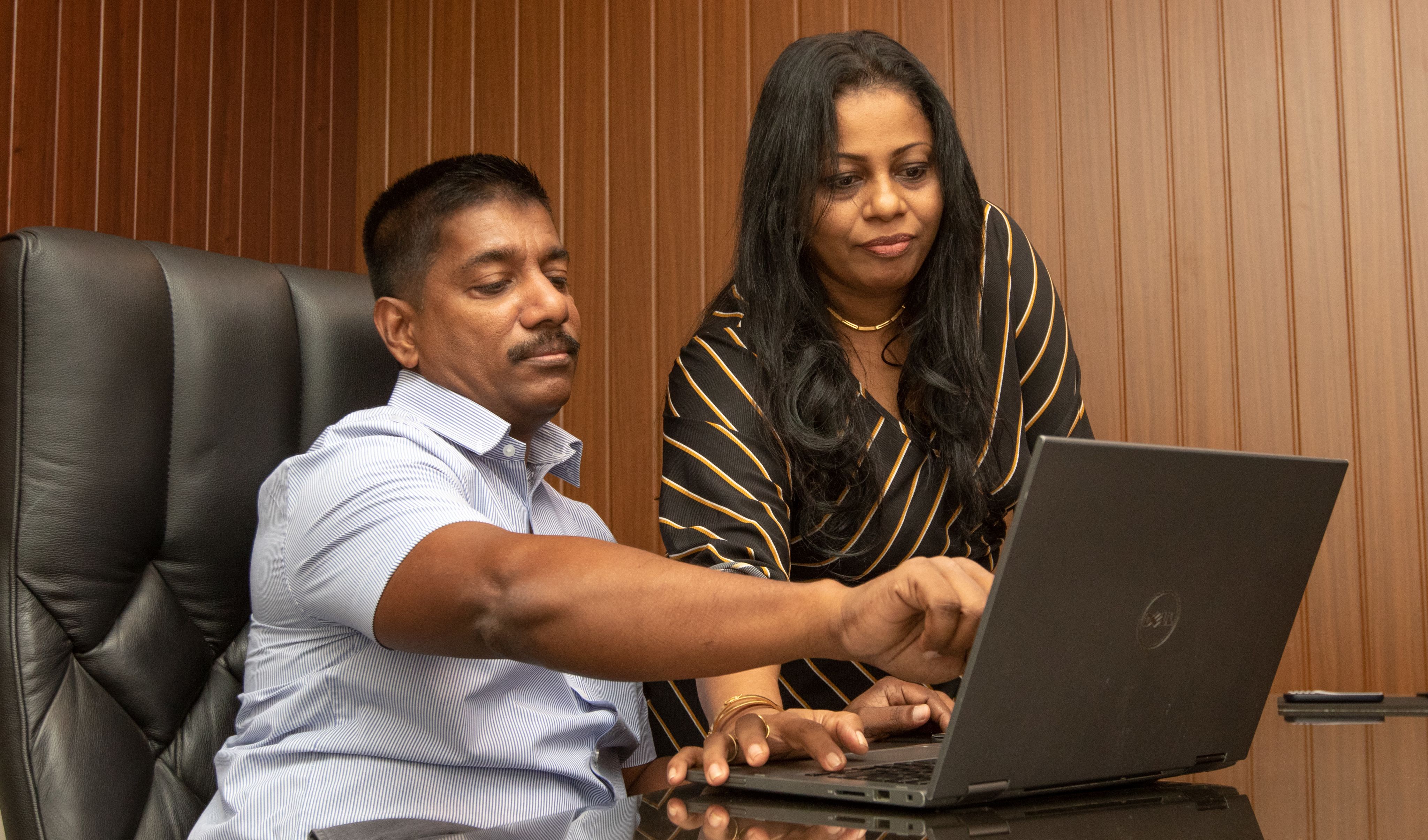
Wickramasingha says that this is the impact that CBL is working to create across its operations. “The future will be very challenging for food supply chains and, this is a critical economic segment for our business and the country. So, it is crucial that we build competencies in our network and in our sales teams, so that we can address key risks in the sector through inclusive business practices.”
CBL hopes that the training program can help the company double the number of women distributors who work in its supply chain as owners, managers, or contributors. Its aim is to support businesses in its network to build resilience and partner with the company to support its growth plans. Improving female participation is a key component of this strategy.
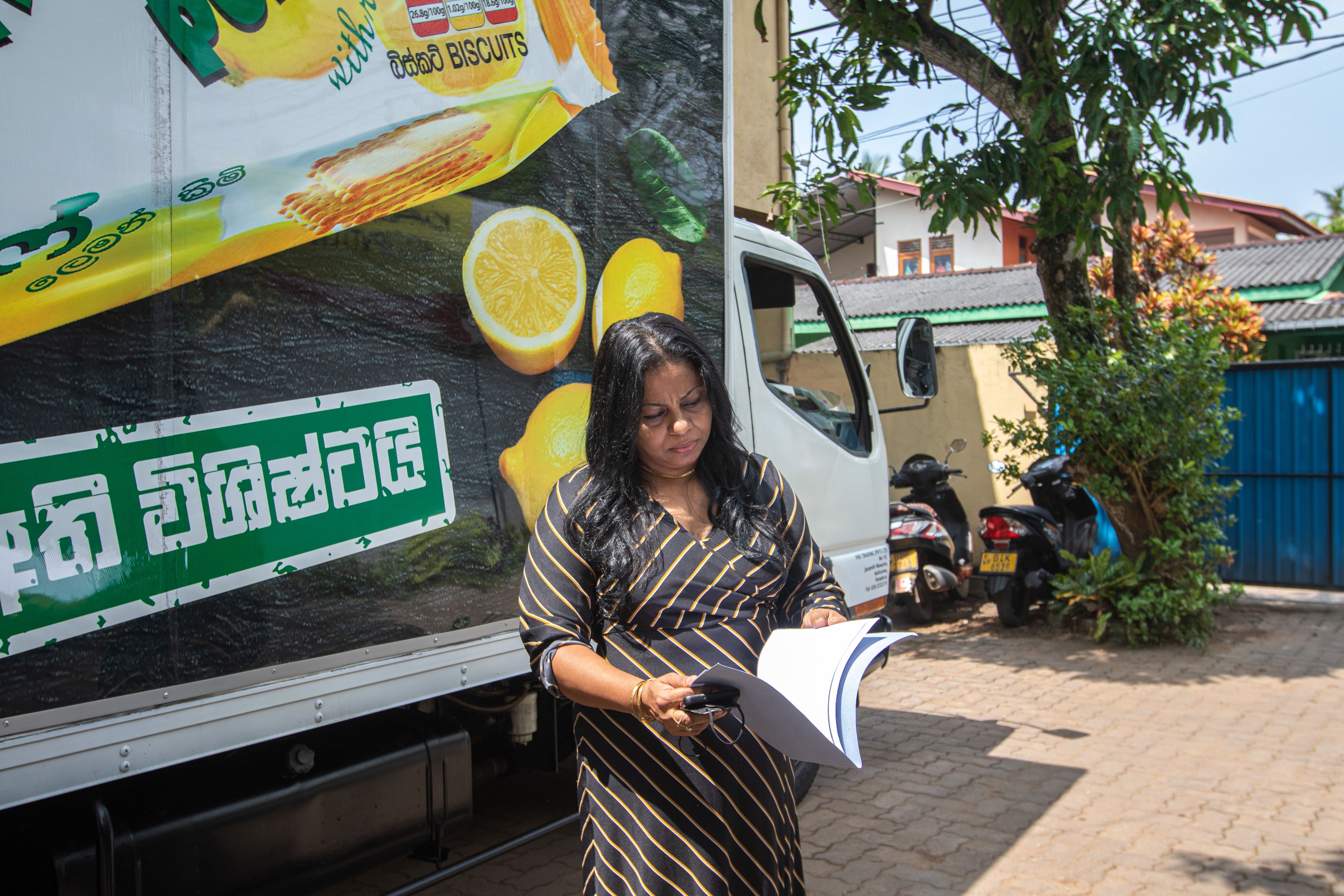
Early indications from the pilot phase have already shown promising results, with increases in sales by as much as 18 to 23 percent among those trained.
Equitable Job Opportunities
The “Route to Success” training, initiated under the IFC-DFAT Women in Work program and in partnership with CBL, aims to strengthen business operations, increase female participation in retail distribution chains, and promote digital payments to improve efficiencies in Sri Lanka’s fast-moving consumer goods distribution chain. The 16-hour training program, along with three months of mentoring support, was also extended to CBL’s 4,000 retailers, both owners and employees, across the country.
This is significant because Sri Lanka’s fast-moving consumer goods sector is a significant contributor to the country’s economy. It accounts for 30 percent of the country’s gross domestic product and close to 20 percent of employment – relying heavily on small and medium enterprise, multi-brand distributors, and retailers to reach consumers. However, lack of business planning as well as ineffective financial and human capital management curtail the growth of these distributors and retailers.
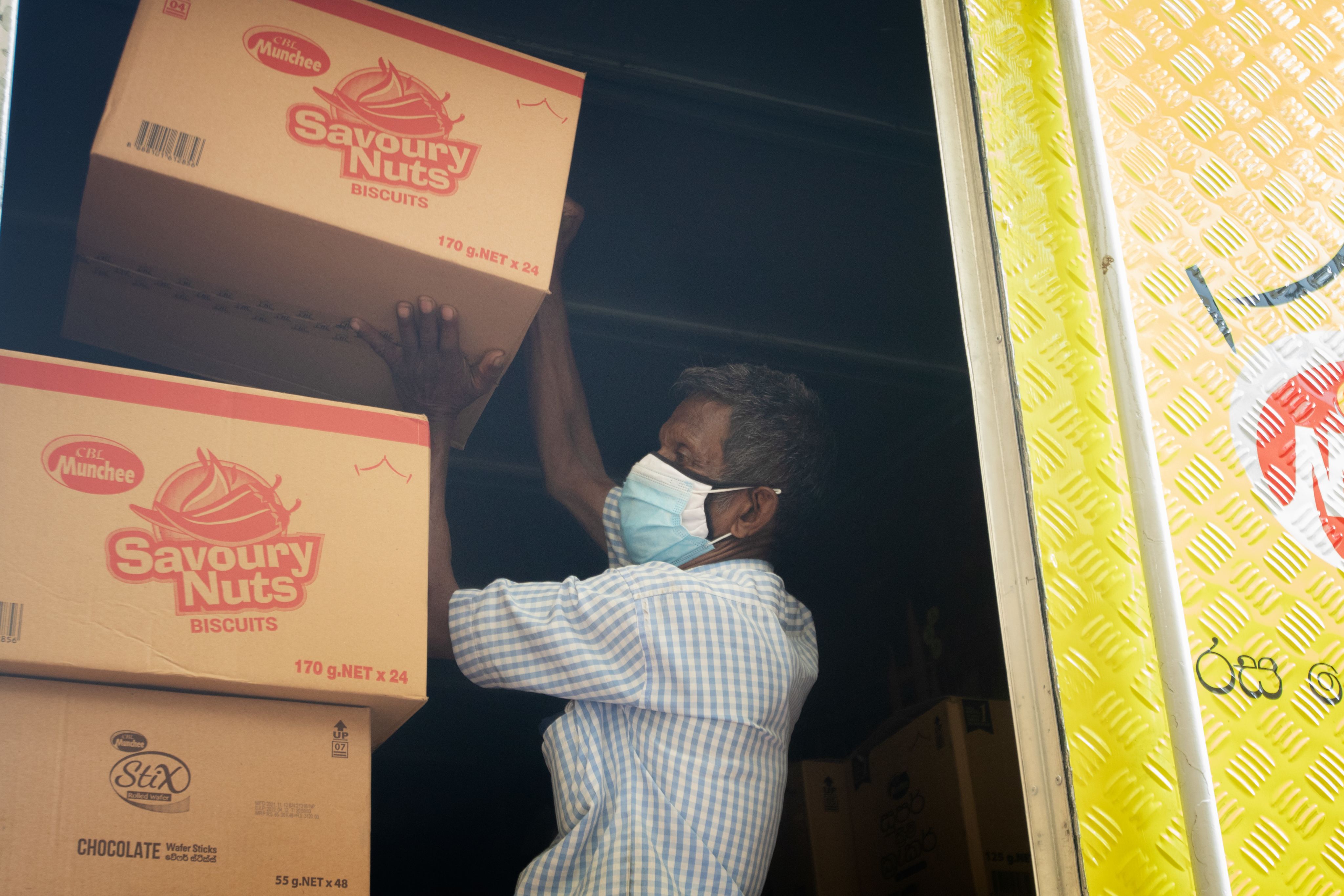
For women who want to enter this traditionally male-dominated field, there are even greater barriers. Getting women into the distribution and retail chain requires tackling social norms and gender stereotypes. Even though there are no regulatory barriers preventing women from business ownership, lack of necessary business management skills and access to information make it difficult for women to break through to higher levels and ownership. The social environment introduces challenges for women who want to run businesses in this sector, or to transform themselves from contributors to decision-makers or owners.
“Women continue to bear the brunt of most societal challenges. But investing in women – especially female entrepreneurs – is an investment in our future,” says Alfonso Garcia Mora, IFC Vice President for Asia and Pacific. He is in Sri Lanka for broad-ranging talks that include a focus on the Women in Work program with private sector representatives, such as CBL. “Straightforward interventions such as capacity building training show how we can unleash the potential of women, generating benefits for society as a whole.”
IFC’s program addresses barriers by increasing the number of roles and opportunities for women distributors and retailers to be owners, managers, or formal contributors. The comprehensive training program includes nine modules, from entrepreneurship and leadership to taxation, marketing, and strategic planning. It also extends to mentoring support after the training has ended.
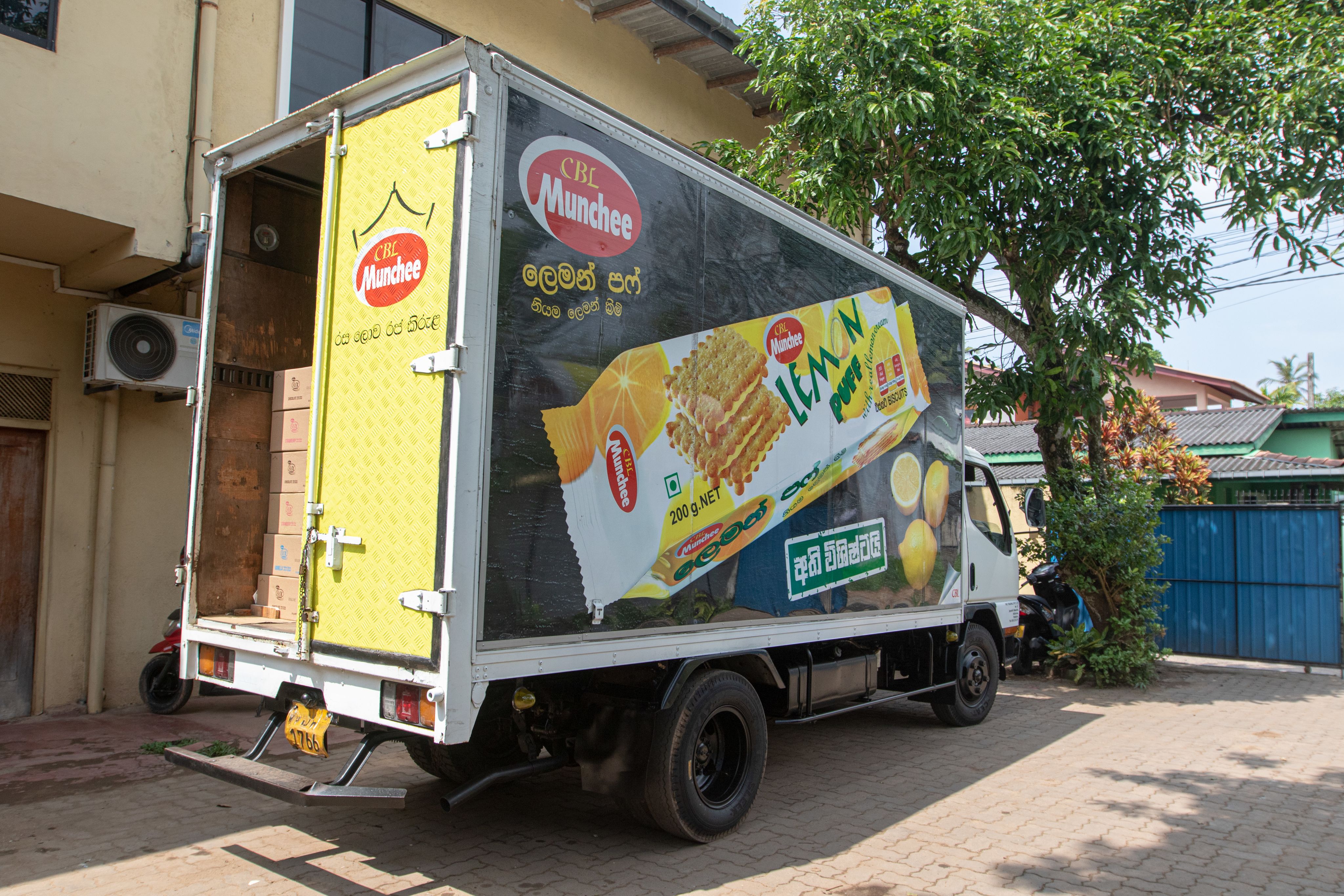
As part of a pilot program initiated by IFC in partnership with CBL and National Development Bank, an IFC investment and advisory client, Y.A.S. Distributors also adopted digital payment systems which have resulted in greater efficiency, especially in financial management. Despite the emergence of digital payments in other Sri Lankan business sectors, distribution chains primarily deal in cash due to the lack of technical knowledge among workers. The IFC program aims to make these processes more efficient for agents like Y.A.S Distributors.
Achieving “the next level”
Today Anura is hopeful for the future of his distribution company.
“My wife is now well aware of how things are done, and she is definitely capable of carrying on with the business activities, even if I am not around,” he says.
Following the training, Nirosha and Anura have made significant improvements to the company’s business administration and financial management and have also launched an employee incentive scheme.
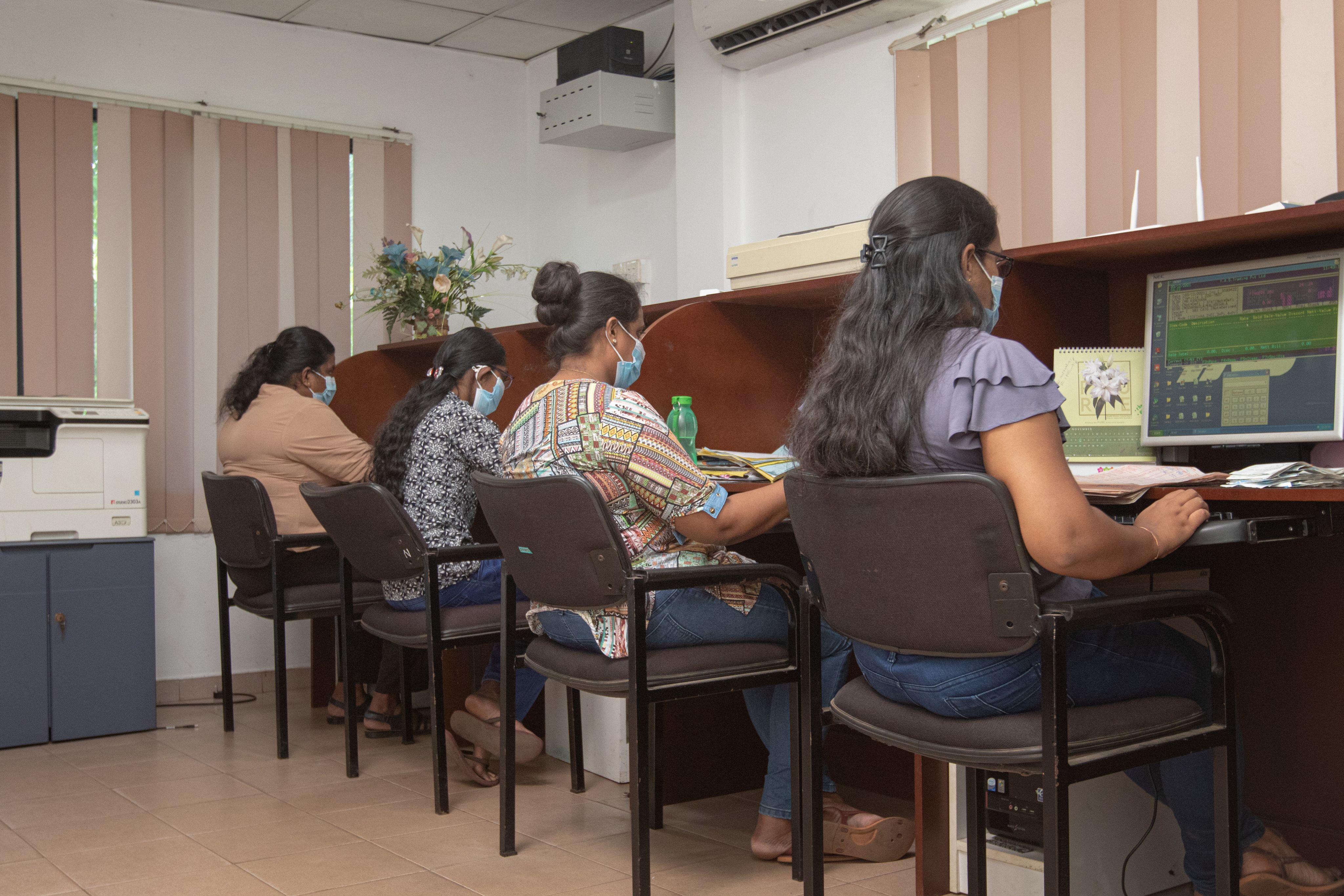
“As someone who wasn’t keen to be a part of the business before, I am thankful for taking the IFC training,” she says. “The program introduced me to fields like human resource management, business success strategies, and so much more, opening up new opportunities for me. I want to further improve our business and get into new ventures. I hope to grow and progress along with the employees, and take our business to the next level.”
Published in March 2022
With over 50 years of operations in Sri Lanka, IFC has played a significant role in the country’s growth story through support for small businesses, tourism, women, including women entrepreneurs, infrastructure, trade finance and agribusiness. IFC has invested over $1.9 billion across sectors including infrastructure, telecom, tourism, energy, health, and have also provided cutting-edge solutions and expertise to our diverse clients across the country. IFC continues to play a strong countercyclical role in Sri Lanka, providing much-needed long-term capital and trade financing to the country’s private sector.
